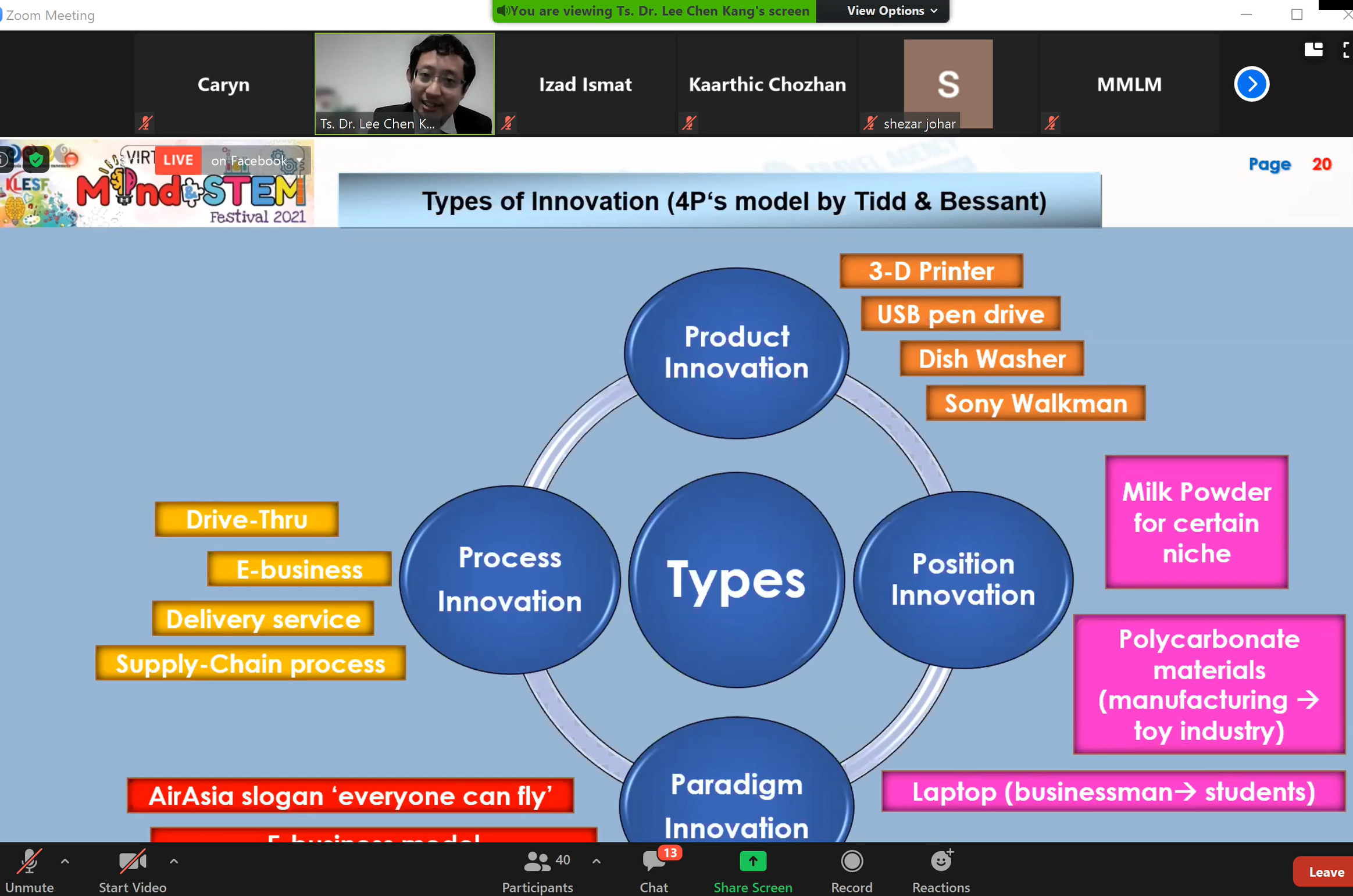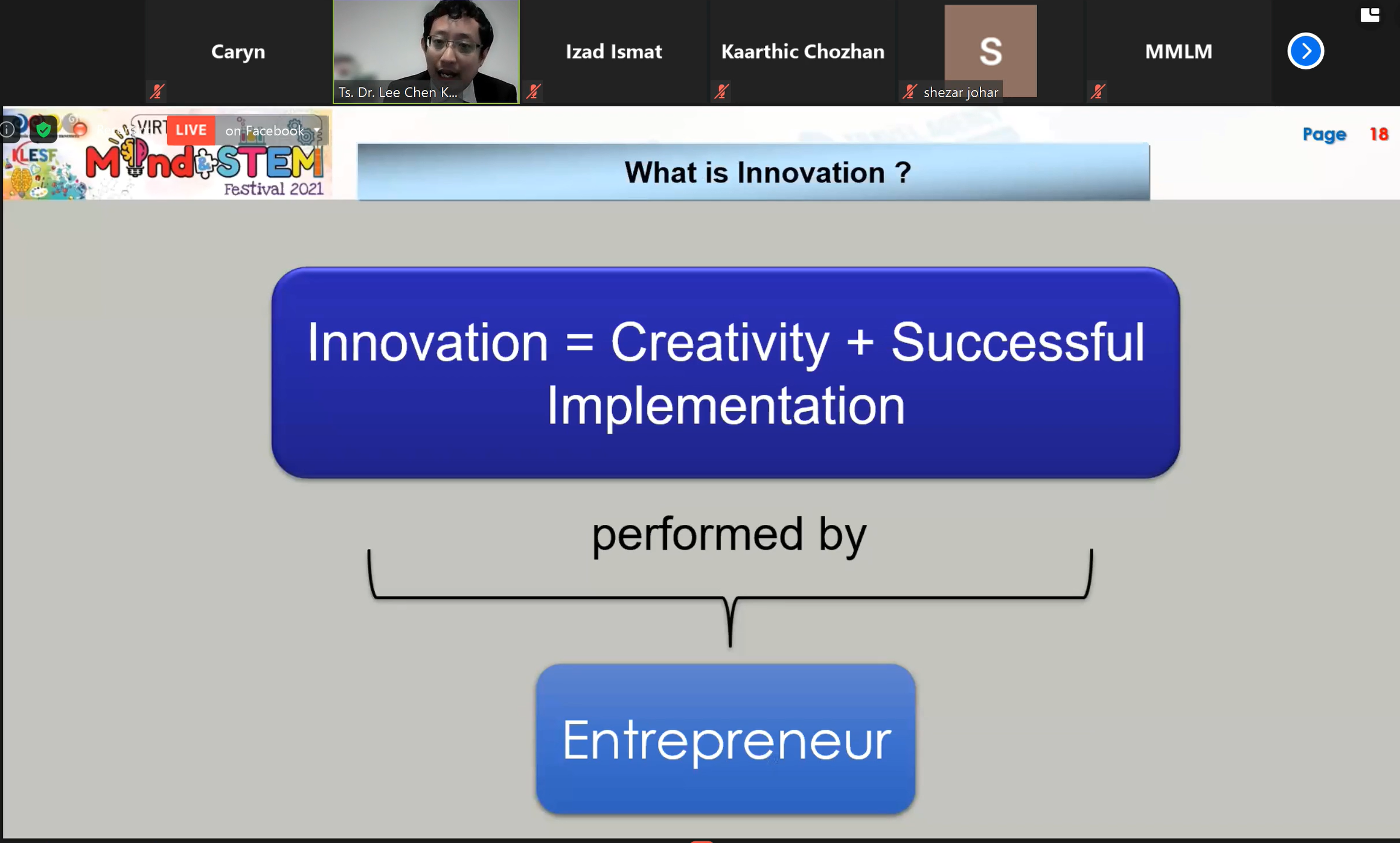
Webinar on the advantages of innovation
As part of the Virtual Mind and STEM Festival 2021 programme, a webinar on “Competitive advantage through innovation – Past, Present and Future” by Ts Dr Lee Chen Kang from the Faculty of Information and Communication Technology was held on 7 July 2021 via Zoom and Facebook Live.
The webinar introduced the key concept of innovation for sustainable competitive advantage in the era of industrial revolution 4.0 as the ability to utilise the knowledge assets for innovation efforts is crucial for the survival of organisations. Apart from that, the webinar exposed the participants to the best practice of innovation, innovation success stories and the evolving trends of innovation in the near future.

Dr Lee explaining the model on types of innovation
Dr Lee gave an introduction to innovation. He said, “Some may say innovation is about idea generation and invention as well as creativity. Innovation comes from the Latin term “innovare” which means to make something new. Innovation is a process of turning opportunities into new ideas and putting these into widely used practice. Innovation is important to customers, shareholders, business, and most often, for our survival and growth. Innovation does make a huge difference to organisation of all shapes and sizes.”
“The logic is simple. If we do not change what we offer to the world and how we create and deliver them; we risk being overtaken by others who do,” said Dr Lee as he explained the case study of Kodak. He added, “Those enterprises that survived do so because they are capable of regular and focused change. It is worth noting that Microsoft, which is currently one of the biggest and most successful companies in the world, takes the view that it is always only two years away from extinction.
Dr Lee also explained on the case study of Singer, the sewing machine. “He is not the inventor but the innovator that took the idea of invention, processed it, combined it and commercialised it to reach the market towards the end-user. Invention is just part of innovation. Innovation covers more than what invention has,” said Dr Lee.
“The two dimensions of innovation are known as disruptive innovation and incremental innovation. Disruptive innovation has the ability to dislocate the current framework and change the rules of the game. It focuses on doing things differently. Only six to 10 per cent of all projects fall under disruptive innovation. On the other hand, incremental innovation takes place in an incremental fashion, doing what is done, but better. Ninety per cent to 95 per cent are incremental innovation,” explained Dr Lee.

Dr Lee sharing his thought on innovation
Aside from that, Dr Lee also spoke about traditional economy versus knowledge economy, industrial revolution 4.0, data, information, knowledge and wisdom, explicit knowledge, tacit knowledge, best practices for managing innovation and other related topics.
Quoting Gerd Leonhard, Dr Lee said, “Strong skills in science, technology, engineering and mathematics will be essential today but achieving excellence in humanity, ethics, creativity and imagination will become equally decisive. The more we digitise our world, the more human we can and we must become. The future work differently but that might be the best things that ever happen to us.”
![]()
© 2021 UNIVERSITI TUNKU ABDUL RAHMAN DU012(A).
Wholly owned by UTAR Education Foundation (200201010564(578227-M)) LEGAL STATEMENT TERM OF USAGE PRIVACY NOTICE